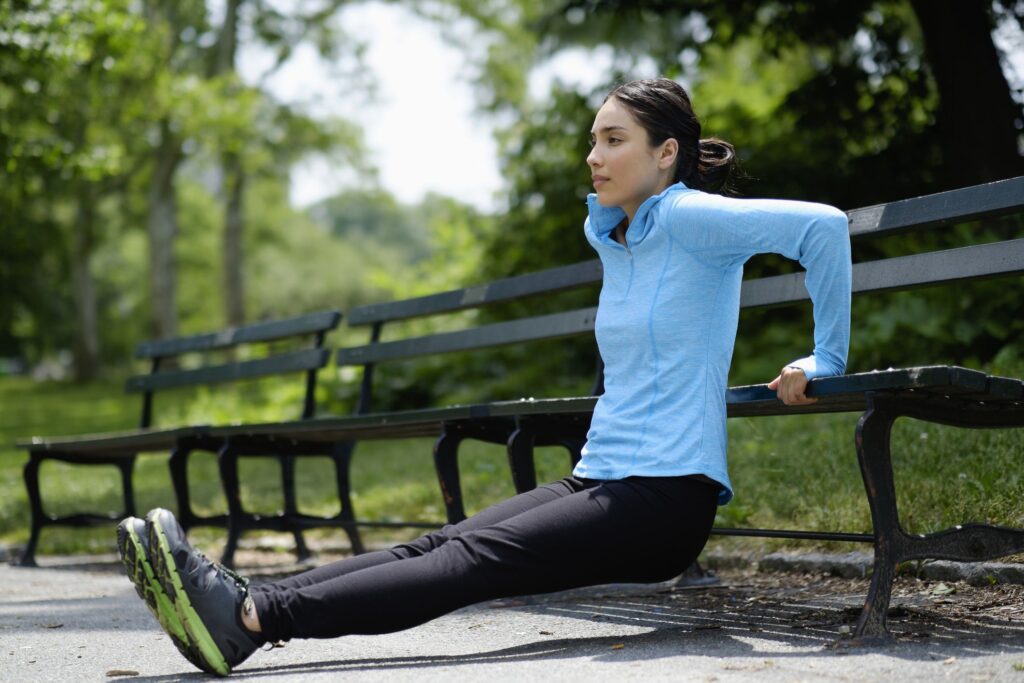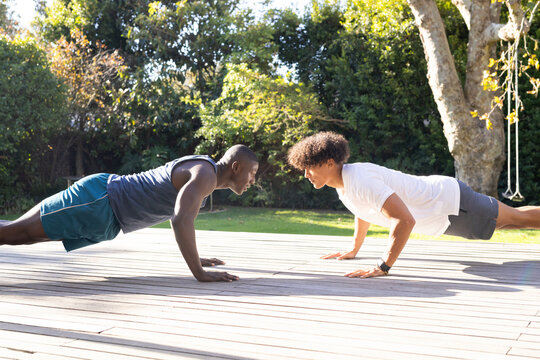There’s something invigorating about exercising outdoors—fresh air, natural scenery, and the freedom to move without walls. Whether you’re tired of the gym or just want to mix up your routine, outdoor fitness offers endless possibilities.
This guide covers:
✅ Best outdoor workouts for all fitness levels
✅ How to use parks, trails, and urban spaces for exercise
✅ Benefits of outdoor vs. indoor training
✅ Essential gear for outdoor fitness
✅ Safety tips for outdoor workouts
Why Train Outdoors?
1. Mental Health Boost
Studies show that outdoor exercise reduces stress, anxiety, and depression more effectively than indoor workouts (Environmental Science & Technology).
2. Vitamin D Exposure
Sunlight helps regulate mood, immune function, and bone health.
3. Functional Fitness
Uneven terrain, wind resistance, and natural obstacles engage more muscles than controlled gym environments.
4. It’s Free!
No gym membership required—just step outside.

Top Outdoor Fitness Activities
1. Trail Running
Best for: Cardio lovers, nature enthusiasts
Benefits:
- Improves balance and agility
- Burns more calories than treadmill running
- Reduces joint impact compared to pavement
Pro Tip: Start with well-marked trails and wear proper trail shoes for grip.
2. Calisthenics in the Park
Best for: Strength training without equipment
Exercises to Try:
- Pull-ups (on playground bars)
- Dips (using park benches)
- Step-ups (on bleachers or logs)
- Plyometric jumps (on grass)
Sample Routine:
3 rounds of:
- 10 Pull-ups
- 20 Bench Dips
- 30 Step-ups
- 40 Mountain Climbers
3. Outdoor HIIT & Circuit Training
Best for: Time-efficient fat burning
Example Workout (20 minutes):
- Sprint Intervals – 30 sec sprint, 30 sec walk (repeat 5x)
- Burpees – 45 sec
- Jump Squats – 45 sec
- Plank to Push-Up – 45 sec
(Rest 1 min, repeat 3 rounds)
4. Hiking with a Weighted Pack
Best for: Endurance and leg strength
Try This:
- Add 10-20 lbs to a backpack for extra resistance
- Choose hilly terrain for glute activation
5. Beach Workouts
Best for: Low-impact training
Sand Benefits:
- Engages stabilizing muscles
- Reduces joint stress
- Adds resistance to movements
Try:
- Sand sprints
- Barefoot yoga
- Resistance band exercises

6. Urban Street Workouts
Best for: City dwellers
Use Your Environment:
- Stair sprints (in stadiums or subway steps)
- Park bench triceps dips
- Wall sits against buildings
Essential Outdoor Fitness Gear
| Item | Why You Need It |
|---|---|
| Moisture-Wicking Clothing | Prevents chafing, keeps you dry |
| Sturdy Sneakers | Trail runners for dirt, cross-trainers for pavement |
| Resistance Bands | Lightweight strength training |
| Hydration Pack | Hands-free water access |
| Sun Protection | SPF 30+, hat, sunglasses |
| Fitness Tracker | Monitors heart rate, distance, calories |
Safety Tips for Outdoor Workouts
- Check the Weather – Avoid extreme heat or storms.
- Stay Visible – Wear bright colors if near roads.
- Hydrate Early – Drink water before feeling thirsty.
- Know Your Route – Share your location if remote.
- Listen to Your Body – Adjust intensity as needed.
Outdoor vs. Indoor Training: Which is Better?
| Factor | Outdoor | Indoor |
|---|---|---|
| Variety | Natural terrain changes | Controlled environment |
| Mental Benefits | Reduces stress, boosts mood | Consistent climate |
| Cost | Free (mostly) | Gym fees/equipment costs |
| Social Aspect | Group hikes, boot camps | Classes, gym buddies |
Verdict: Both have merits—rotate between them for balanced fitness.
Final Thoughts
Outdoor fitness isn’t just a workout—it’s an experience. Whether you’re sprinting on a beach, hiking a mountain, or doing pull-ups at a local park, nature provides the ultimate gym.
Your Challenge This Week: Replace one indoor workout with an outdoor session. Notice how you feel—mentally and physically!



